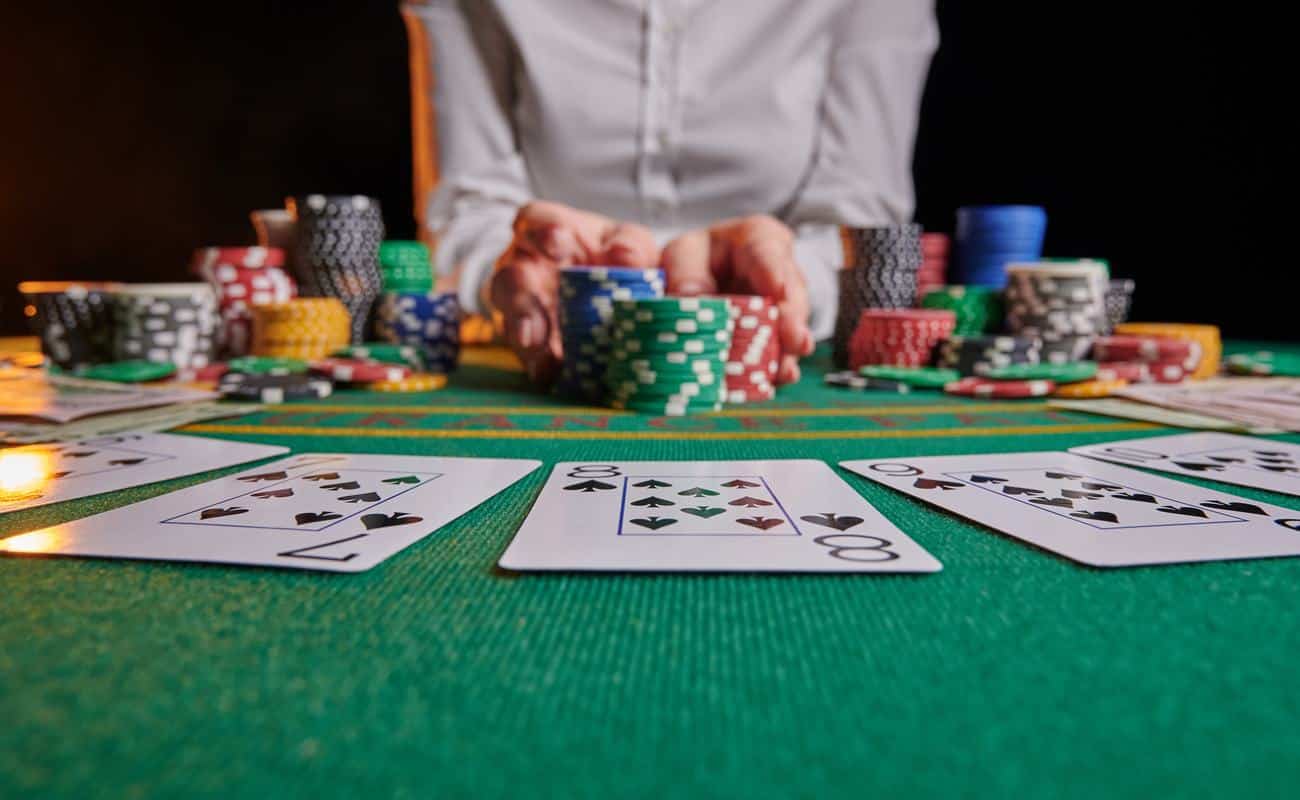As a seasoned gambling expert with years of experience in the gaming industry, I’ve witnessed the myriad ways players approach their time in casinos. My name is Milan Rabszski, and over the years, I’ve analyzed countless gaming strategies, delved into the psychological aspects of gambling, and observed the habits of both successful and unsuccessful players.
My extensive experience has shown me that while luck plays an undeniable role in casino gaming, there are several factors within a player’s control that can significantly enhance their chances of walking away a winner.
Many players enter casinos with the hope of hitting the jackpot, but few understand the strategic elements that can influence their success. It’s not just about the roll of the dice or the spin of the wheel; it’s about making informed decisions, managing your bankroll effectively, and understanding the nuances of each game. The allure of casinos lies in their unpredictability, yet this very unpredictability can be navigated with the right knowledge and approach.
In this article, I’ll share the insights and secrets that can help you tip the odds in your favor and maximize your success in the casino. From choosing the right games to employing effective strategies and managing your emotions, these tips are designed to provide you with a comprehensive guide to becoming a more successful gambler.
Whether you’re a novice looking to improve your skills or a seasoned player seeking to refine your approach, these strategies will equip you with the tools you need to increase your chances of winning big.
Legal Polish online casino is a term that denotes online gambling platforms that operate legally within the jurisdiction of Poland. These casinos adhere to stringent regulations set forth by Polish law, ensuring a safe and secure environment for players.
Choosing to play at legalne polskie kasyno online offers players the assurance that their funds are protected, games are fair, and winnings will be paid out promptly. By opting for licensed operators, players can enjoy a wide range of games, transparent terms, and access to customer support in their native language, all while complying with local laws governing online gambling.
Choosing the Right Game
One of the most critical steps toward achieving success in a casino is selecting the right game to play. Each game in a casino has its own set of rules, odds, and strategies that can influence your chances of winning.
Understanding these elements and choosing a game that aligns with your skills and preferences can significantly enhance your likelihood of success. Here’s a deeper look into why choosing the right game is so important and how you can make the best decision.
First, it’s essential to understand the concept of the house edge. The house edge is the mathematical advantage that the casino has over the players. It represents the percentage of each bet that the casino expects to keep over the long run.
Different games have different house edges, and by choosing games with a lower house edge, you can improve your chances of winning. For example, blackjack and poker typically have lower house edges compared to games like roulette and slot machines.
Next, consider your personal skills and knowledge. Games like blackjack and poker require a certain level of skill and strategy, whereas games like slots are primarily based on luck. If you have a good understanding of card games and can employ strategies effectively, you might find more success in these games.
On the other hand, if you prefer a more relaxed and luck-based experience, slots or roulette might be more to your liking.
Additionally, it’s crucial to take into account the volatility of the game. Volatility refers to the frequency and size of payouts in a game. High volatility games pay out less frequently but offer larger prizes, while low volatility games pay out smaller amounts more regularly. Depending on your risk tolerance and bankroll, you might prefer one type of game over the other.
Lastly, pay attention to the rules and variations of the games. Even within the same game category, different casinos might offer slightly different rules that can affect your odds. For example, some variations of blackjack have rules that are more favorable to the player, such as allowing double downs on any two cards or the dealer standing on soft 17.
Key points to consider when choosing the right game
- House Edge: Choose games with a lower house edge to improve your chances of winning.
- Skill Level: Match your game choice with your personal skills and knowledge.
- Volatility: Decide whether you prefer high volatility (less frequent but larger payouts) or low volatility (more frequent but smaller payouts) games.
- Rules and Variations: Look for game variations with rules that are more favorable to the player.
- Personal Enjoyment: Ensure that you enjoy the game you are playing, as this will enhance your overall casino experience.
Choosing the right game is not just about maximizing your chances of winning; it’s also about ensuring you have a pleasurable and engaging experience. By taking these factors into account, you can make more informed decisions and increase your overall success in the casino.
Bankroll Management
Effective bankroll management is a cornerstone of long-term success in casino gaming. It involves strategically controlling the amount of money you allocate for gambling, ensuring that you can enjoy the experience without risking financial stability.
Proper bankroll management can help you avoid significant losses, make more rational decisions, and ultimately increase your chances of walking away with a profit.
The first step in bankroll management is setting a budget. Determine how much money you can afford to lose without it impacting your daily life or financial obligations. This amount should be viewed as the cost of entertainment, similar to spending money on a concert or a night out.
Once you have established your budget, it’s crucial to stick to it strictly, regardless of winning or losing streaks. This disciplined approach prevents you from chasing losses or getting carried away by wins, which can lead to impulsive and detrimental financial decisions.
Another important aspect of bankroll management is setting limits for each session. Decide in advance how much of your total bankroll you are willing to risk in a single session and never exceed this limit.
Breaking your bankroll into smaller, manageable portions for each gaming session can help you stretch your funds over a longer period, giving you more opportunities to play and potentially win. For example, if your total bankroll is $1,000, you might allocate $100 for each session, ensuring you have ten sessions worth of play.
Additionally, implementing a stop-loss limit and a stop-win limit can be beneficial. A stop-loss limit is the maximum amount you are willing to lose in a session, and once you reach this limit, you stop playing. This helps protect your bankroll from significant losses.
On the other hand, a stop-win limit is the amount of profit at which you decide to stop playing. This strategy ensures that you lock in your winnings and don’t give them back to the casino through continued play.
Moreover, it’s essential to choose games and bet sizes that align with your bankroll. Opting for games with lower minimum bets can allow you to play longer and reduce the risk of depleting your bankroll quickly. Similarly, adjusting your bet sizes based on your bankroll can help manage risk more effectively. For instance, a general rule of thumb is to bet no more than 1-2% of your total bankroll on a single wager.
Finally, maintaining a record of your gambling activities can provide valuable insights into your spending habits and help you make more informed decisions in the future. By tracking your wins, losses, and the games you play, you can identify patterns and adjust your strategies accordingly.
Knowledge of Game Strategies
Having a thorough understanding of game strategies is crucial for anyone looking to increase their chances of success in a casino. Unlike games of pure chance, many casino games require a blend of skill, strategy, and decision-making.
By mastering these strategies, players can significantly tilt the odds in their favor. Here’s an in-depth look at why knowledge of game strategies is so important and how it can be applied to various popular casino games.
First and foremost, knowing the optimal strategy for a game helps minimize the house edge, thereby improving your chances of winning. For instance, in blackjack, using basic strategy—which involves making mathematically optimal decisions based on your cards and the dealer’s visible card—can reduce the house edge to as low as 0.5%. This is a substantial improvement over playing without any strategy, where the house edge can be upwards of 2-3%.
In poker, strategy is even more critical. Successful poker players must understand hand rankings, probability, bluffing techniques, and opponent behavior. Unlike most casino games, poker pits players against each other rather than the house, making it a game of skill where strategic knowledge can lead to consistent winnings over time.
Roulette, while more reliant on chance, still offers strategic opportunities. Players can use betting systems like the Martingale or Fibonacci to manage their bets and attempt to capitalize on streaks. However, it’s important to remember that no strategy can overcome the inherent house edge in roulette.
Slot machines, which are typically seen as games of pure luck, also have strategies that can enhance your experience. Understanding payout percentages, volatility, and bankroll management can help you choose the right machines and manage your sessions more effectively.
Key Strategies for Popular Casino Games
| Game | Strategy | Impact |
|---|---|---|
| Blackjack | Basic Strategy: Following a chart to make the best statistical decision based on your hand and the dealer’s upcard. | Reduces house edge to 0.5% |
| Poker | Hand Rankings, Bluffing, Positional Play, Reading Opponents | Can turn the game into a profitable endeavor; skill-based |
| Roulette | Betting Systems (Martingale, Fibonacci, etc.), Understanding Odds | Helps manage bankroll and capitalize on winning streaks, though house edge remains |
| Slots | Choosing High RTP (Return to Player) Machines, Managing Bankroll, Understanding Volatility | Maximizes playtime and potential payouts; helps with managing expectations |
| Craps | Pass/Don’t Pass Bets, Come/Don’t Come Bets, Odds Bets | Lowers house edge and provides better odds for the player |
In blackjack, employing the basic strategy involves making decisions such as hitting, standing, doubling down, or splitting pairs based on a set chart. This chart is derived from probability and statistical analysis, and following it precisely can significantly improve your performance.
For example, if you have a hand totaling 16 and the dealer’s upcard is a 10, basic strategy dictates that you should hit, as the probability of busting is lower than the chance that the dealer will have a higher hand.
Poker strategies are more complex and varied. They include understanding when to bet, call, raise, or fold based on the strength of your hand and the behavior of your opponents.
Additionally, positional play—acting last gives you more information and strategic advantage—can significantly influence your decisions and outcomes. Advanced players also utilize bluffing to mislead their opponents and extract more value from strong hands.
Achieving success in a casino is a blend of luck, strategy, and disciplined decision-making. Throughout this exploration of factors that influence your chances of winning big, we’ve discovered that while luck plays a significant role, there are actionable steps you can take to tilt the odds in your favor.
Choosing the right game based on its house edge, volatility, and your own skill level is crucial. Games like blackjack and poker, where strategy can reduce the house edge, offer better odds for knowledgeable players.
Effective bankroll management ensures you can weather losing streaks and capitalize on winning ones without risking financial stability. Knowing and applying game strategies, whether it’s basic blackjack strategy or advanced poker tactics, can further enhance your chances of success.
Psychological preparation is equally important. Maintaining emotional control, avoiding chasing losses, and knowing when to walk away can prevent impulsive decisions that lead to losses. Utilizing bonuses and promotions wisely can also provide additional opportunities to play and win without increasing your financial risk.
Ultimately, success in a casino is about making informed choices, managing risk, and enjoying the experience responsibly. By integrating these factors into your approach, you can increase your chances of walking away from the casino with more than you started, both financially and in terms of satisfaction with your gaming experience.



